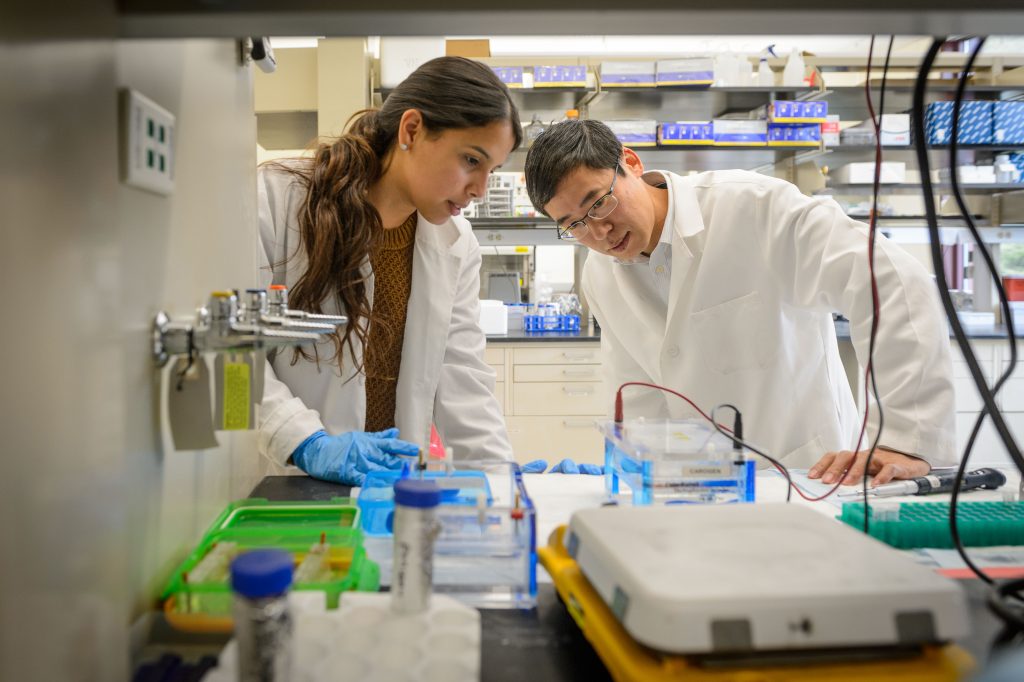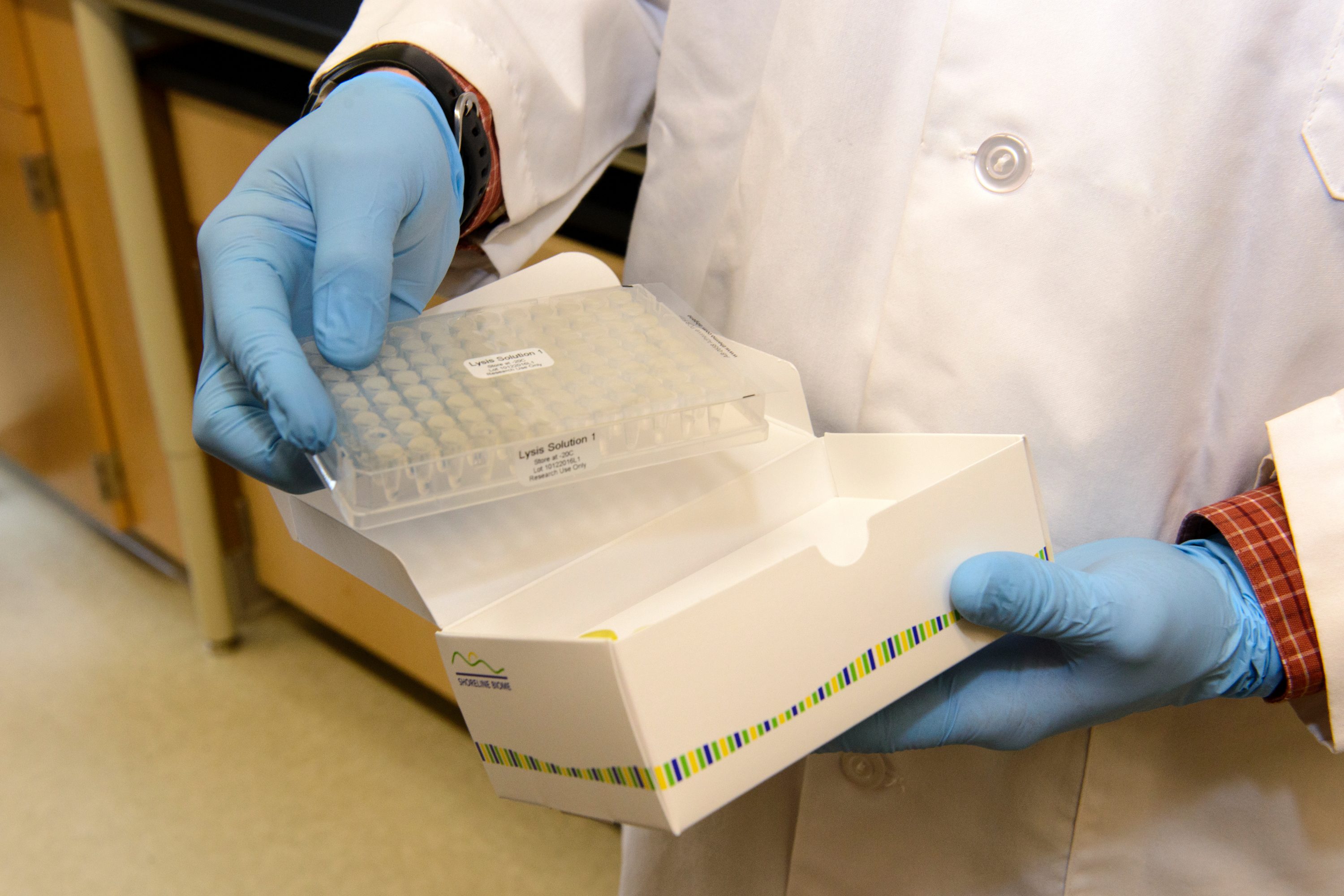The University of Connecticut today announced record growth in 2016 for the University’s Technology Incubation Program (TIP). The program was established in 2004 to accelerate the growth of technology-based startups with a strong connection to the University.
TIP companies raised record investments in 2016. Last year, TIP startups attracted a record $39.9 million in debt and equity to accelerate the growth of their operations. This is $15.5 million more than the previous record set in 2014.

Under the umbrella of UConn’s Office of the Vice President for Research, TIP supports UConn startups as well as innovative external technology ventures. Outside startups conduct R&D activities in Connecticut, and benefit from UConn’s research infrastructure, specialized equipment, customized business support services and talent pool.
“The unprecedented state support from Gov. Dannel P. Malloy for the Bioscience Connecticut initiative is bearing fruit in the University of Connecticut Technology Incubation Program,” says Jeff Seemann, UConn/UConn Health vice president for research. “Instead of going to Boston or New York, these companies choose to stay in Connecticut to grow their companies, create jobs, and benefit society with their cutting-edge advances.”
Several TIP companies raised significant investments from debt and equity in 2016, contributing to the program’s record-setting total.

Agrivida, an agritech company focused on animal nutrition, had the most substantial raise, with $21 million in Series E funding. The funds will be used to advance the commercialization of Agrivida’s patented GRAINZYME feed additive enzymes for use with poultry and swine, and to support product development for dairy and beef cattle.
“Being a part of UConn’s incubator has helped us meet significant milestones for our company,” says Dan Meagher, CEO of Agrivida. “We are looking forward to delivering on our promise to improve the production efficiency of meat, milk, and eggs to help address the growing global demand for food.”
Frequency Therapeutics successfully raised $9.1 million in 2016, and recently announced a $32 million Series A financing, to continue developing a drug-based therapy to restore hearing in individuals with hearing loss caused by continuous exposure to loud noises. The company is applying its proprietary platform, called Progenitor Cell Activation (PCA), to regenerate inner ear sensory hair cells, which detect sound and transmit signals to the brain. According to the World Health Organization (WHO), 360 million people worldwide have moderate or worse hearing loss, with an additional 1.1 billion people at risk for hearing loss from recreational noise alone.
“Frequency Therapeutics’ scientific team, based at TIP at UConn Health, played an important role in supporting the development of the company’s PCA platform to restore healthy tissue in the body,” says Bob Langer, the David H. Koch Institute Professor at the Massachusetts Institute of Technology and co-founder of Frequency Therapeutics. “We greatly appreciate the ongoing support from TIP as Frequency advances its program for chronic noise-induced hearing loss, and looks to expand into additional therapeutic indications.”
Diameter Health, a health care software company that helps providers analyze data from their electronic health records more effectively, raised $2.3 million; and CaroGen Corp., an emerging vaccine immunotherapy company, raised $2 million.

According to Bijan Almassian, CEO of CaroGen, the TIP location provides a beneficial vantage point to meet and acquire the talent and expertise needed to conduct R&D operations to grow his company. “The powerful combination of faculty expertise, student and graduate hires, and seasoned industry scientists from across the state gives us access to the full array of capabilities that are enabling our progress,” he says.
UConn’s Technology Incubation Program continues to outperform other technology incubators, both in Connecticut and nationally. According to the latest National Business Incubation Association survey data, in 2016 UConn’s incubator was 12,000 square feet larger and housed 62 percent more startups than the national average. UConn TIP’s $39.9 million raised last year compares with an average $400,000 in capital raised annually by other business incubators in the state, as reported in the latest Connecticut Business Incubator Network survey.
“TIP is an established program in Connecticut that is known to improve the likelihood of startup success,” says Mostafa Analoui, executive director of venture development and TIP at UConn. “We are pleased with the growth we experienced in 2016, and hope to keep up this momentum.”
Analoui was hired last year to lead UConn’s efforts to identify disruptive technologies that are ripe for venture development; recruit entrepreneurs and talent to lead these startups; and raise early-stage and follow-on funding to grow these companies.
In January 2016, a $19 million expansion at the TIP facility was completed at UConn Health in Farmington. Paid for through the State of Connecticut’s landmark Bioscience Connecticut initiative, the addition increased total square footage by 20,000 square feet. The program now boasts more than 32,000 square feet of high-tech wet labs and office space at its two major locations in Storrs and Farmington.
The extra space has allowed TIP to accept more technology startups into the program. In 2016, TIP was home to 33 companies – the most in the program’s history.
TIP companies contributed to economic development in the state through increased job creation. At the end of 2016, TIP companies employed 71 full-time and 30 part-time employees. This compares with the state average of 27 full- and part-time employees at other incubators in Connecticut.
More than 85 startup companies have been supported through TIP since it was established in 2004. These companies have raised more than $50 million in grant funding, $80 million in debt and equity, and more than $45 million in revenue during that time.
For more information about the UConn Technology Incubation Program, call 860-679-3992 or visit ip.uconn.edu.



